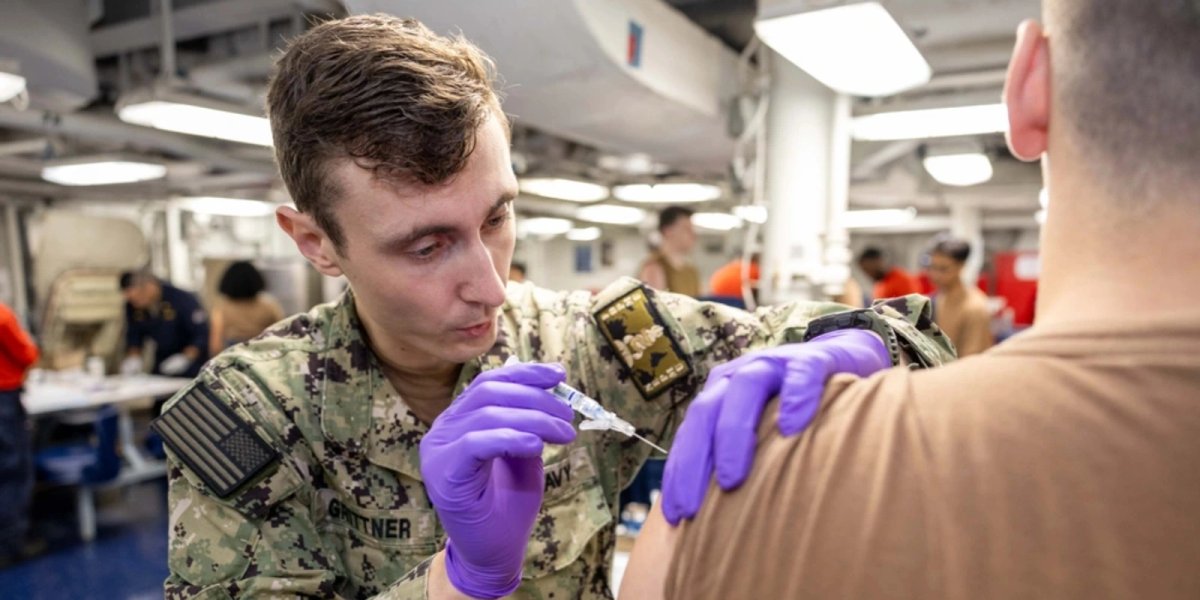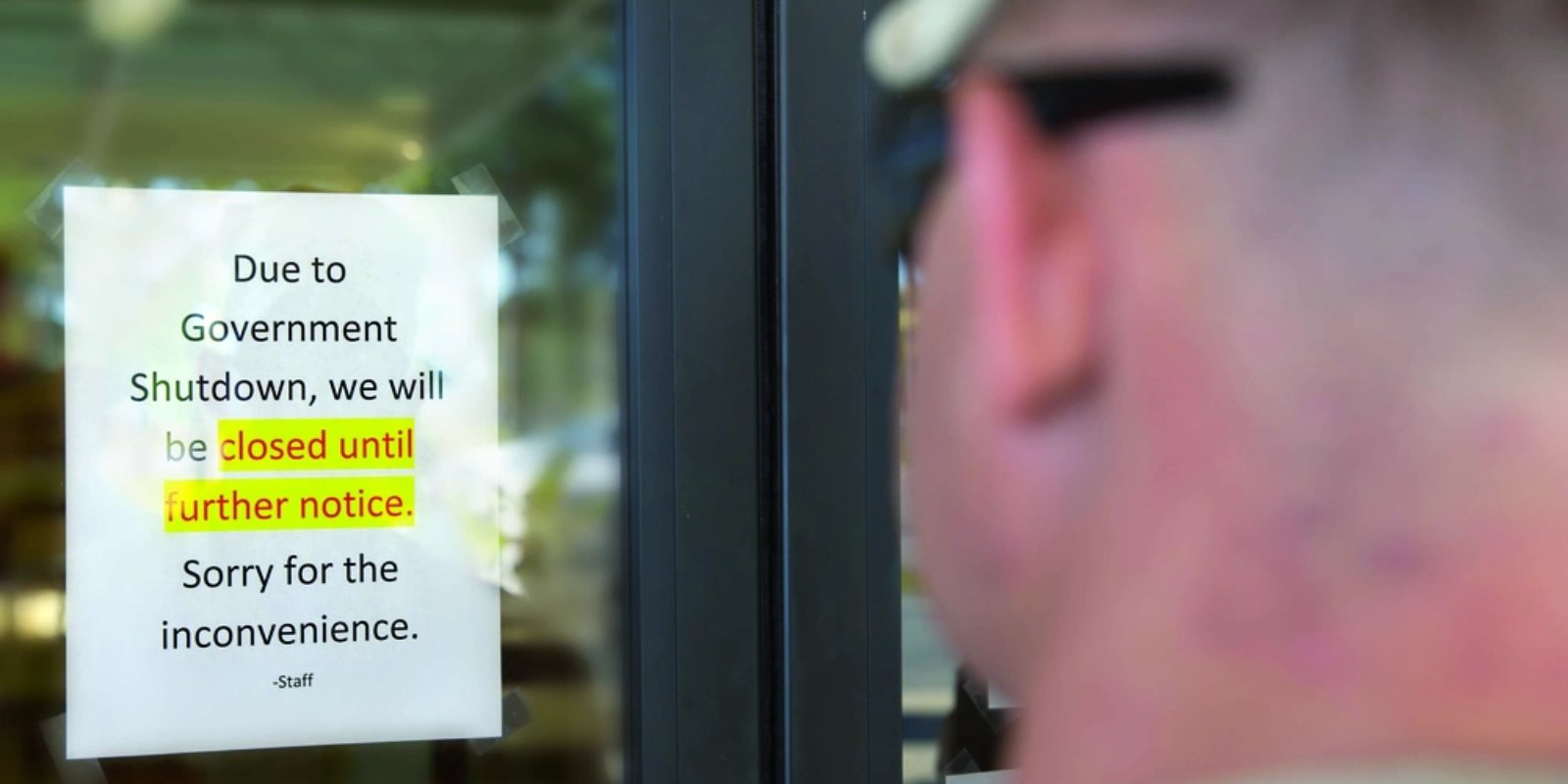PENTAGON ADJUSTS FLU SHOT POLICY FOR TROOPS' READINESS

The Pentagon has shifted from requiring annual flu shots for all service members to a system based on mission needs.
In a May 29, 2025, memorandum, Deputy Defense Secretary Steve Feinberg directed the Department of Defense (DoD) to require flu vaccinations "only when doing so most directly contributes to readiness." The new rule maintains the mandate for active-duty troops but introduces exemptions for the National Guard and Reserve.
Under the updated guidance, Guard and Reserve personnel only need the flu vaccine if they are on active orders for 30 consecutive days or more. Those who do not meet this threshold can still volunteer for vaccination, but won’t receive pay or retirement points from the DoD unless another authority applies.
For example, during a short-notice humanitarian mission, unvaccinated Guard members could complicate rapid deployment, potentially slowing response and reducing unit effectiveness. This policy aims to match requirements to readiness needs and better allocate resources by requiring seasonal flu vaccination for service members only when doing so most directly contributes to readiness,” the memo states.

Pentagon Flu Shot Policy Adjustments for 2024
Previously, annual flu shots were mandated for active-duty and many Reserve members, unless they had exemptions. Service-level orders sometimes extended these requirements further, such as a 2024 Marine Corps directive for universal vaccination that year.
The updated DoD Instruction 6205.02, Change 2 (June 28, 2025), formally codifies the new approach. It confirms:
- Active Component service members must still receive the seasonal flu vaccine annually or obtain an exemption from it.
- Reserve Component members are required to vaccinate only when activated for 30 consecutive days or longer.
- DoD funding will not be allocated for reservists to vaccinate outside that status, unless another authority applies.
The policy still permits vaccination mandates during outbreaks or pandemics, contingent upon public health conditions and regulatory approvals.
Pentagon's Rationale for Flu Shot Policy Changes
This change aims to strike a balance between readiness and resource management. By narrowing the requirement, the DoD emphasizes that flu shots remain important for force health but should target those actively supporting operational readiness.
It is projected that this policy alteration could save approximately $5 million annually, taking into account prior-year expenditures on flu vaccinations for the National Guard and Reserve members. These savings will enable the department to allocate funding more strategically in support of mission-critical operations.
For Guard and Reserve members, this change may reduce administrative burden and personal costs if they opt not to vaccinate while in civilian status. However, it also raises concerns about potential outbreaks in training environments where unvaccinated personnel may come into contact with active-duty forces.
Historically, the military has experienced outbreaks with attack rates of up to 20% in unvaccinated clusters, such as during the 2004 outbreak in Fort Jackson.
Such scenarios highlight the importance of understanding the risks associated with reduced vaccination rates, particularly in settings where close quarters and constant contact are prevalent.
“Active duty service members are still covered, but Guard and Reserve troops now face a very different set of expectations,” Military Times reported.

Reactions and Concerns
Public health experts warn that reducing vaccination rates among any segment of the force could increase the risk of seasonal influenza spreading in close-quarters military settings. The Centers for Disease Control and Prevention (CDC) continues to recommend annual flu vaccination for everyone aged six months and older, including healthy adults.
Congressional Research Service (CRS) previously summarized military vaccination policy as applying to “all active duty and selected reserve personnel” before the 2025 update. That broader requirement has now narrowed significantly.
For Guard and Reserve members, the direct effect is financial—they will no longer receive payment or earn retirement points solely for vaccination unless on extended orders —and must arrange and fund vaccination independently if not in a qualifying status. This can reduce administrative complexity but shifts responsibility to the individual.
Now, the new flu shot policy boils down to three key points:
- Active duty troops: Still required to get vaccinated each year unless exempt.
- Guard and Reserve: Required only with 30+ consecutive days of activation.
- Funding: No DoD pay or retirement points for non-activated reservists to vaccinate.
This clarification comes as the Pentagon reviews broader force health policies following the COVID-19 pandemic, which highlighted both the importance and controversy of military vaccine mandates.
Impact on Military Readiness from Policy Shift
A key question is how commanders will interpret the memo’s readiness-focused language. By tying vaccination to direct contributions to readiness, the DoD may be granting greater discretion to leaders at the unit or mission level.
How each service branch implements this and how it uses this discretion will determine whether the policy shifts actual practices or mainly reframes requirements. Watch how implementation affects vaccine coverage rates and operational readiness.
The Pentagon's decision to narrow flu shot requirements reflects a shift toward prioritizing resource preservation and readiness while reducing obligations for Guard and Reserve members.
Key takeaways for each group:
- Troops: Stay informed about vaccination rules, especially when transitioning between active and reserve status.
- Commanders: Assess your unit's readiness and be prepared to act quickly if vaccination status affects deployment.
- Policymakers: Monitor for readiness or health issues associated with the policy and adjust as needed.
These steps help maintain readiness while adapting to evolving operational needs.
Suggested reads:
Veteran & Senior Contributor, Military News
Natalie Oliverio
Navy Veteran
Natalie Oliverio is a Navy Veteran, journalist, and entrepreneur whose reporting brings clarity, compassion, and credibility to stories that matter mo...
Credentials
- Navy Veteran
- 100+ published articles
- Veterati Mentor
- Travis Manion Foundation Mentor
- Journalist and entrepreneur
Expertise
SHARE:



